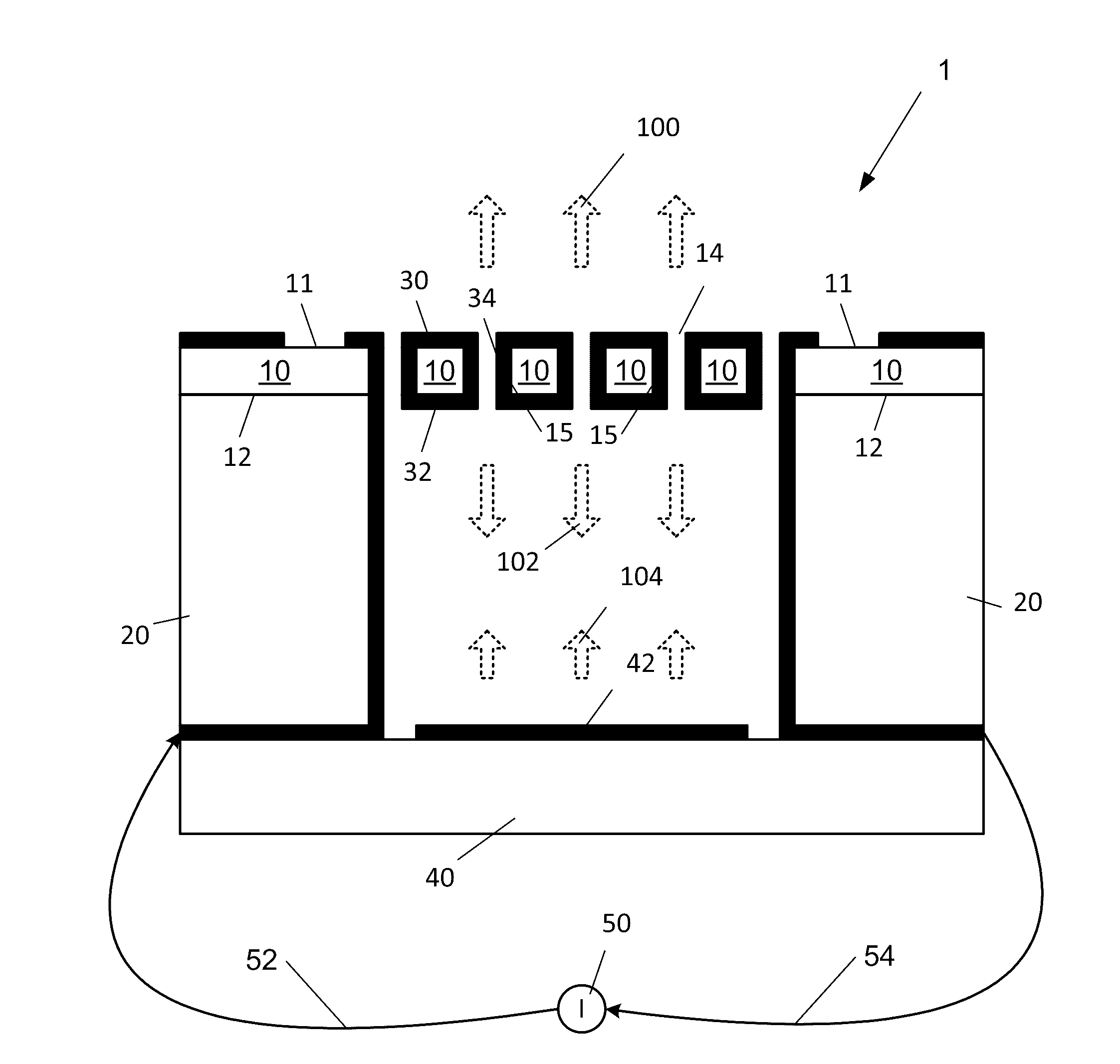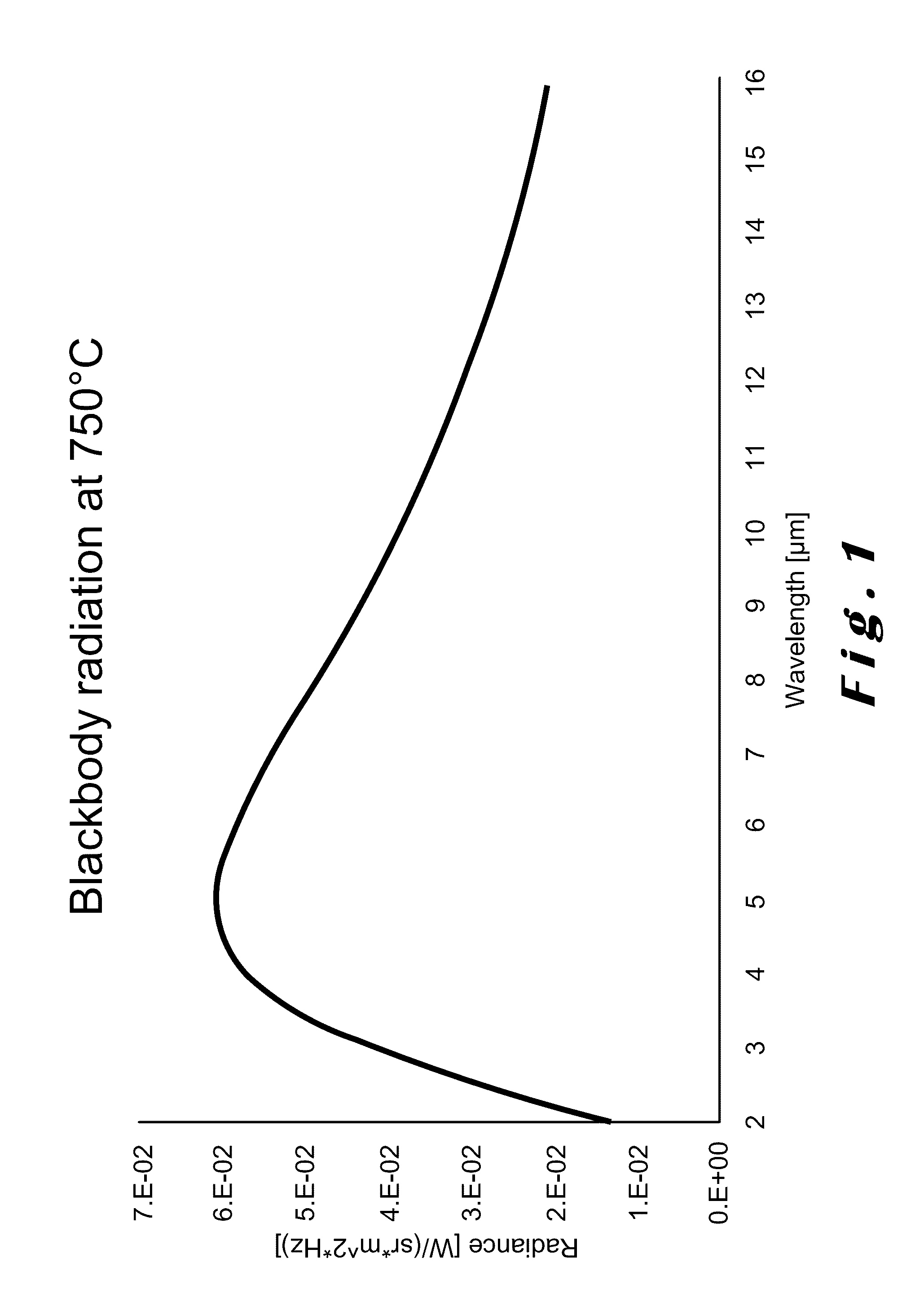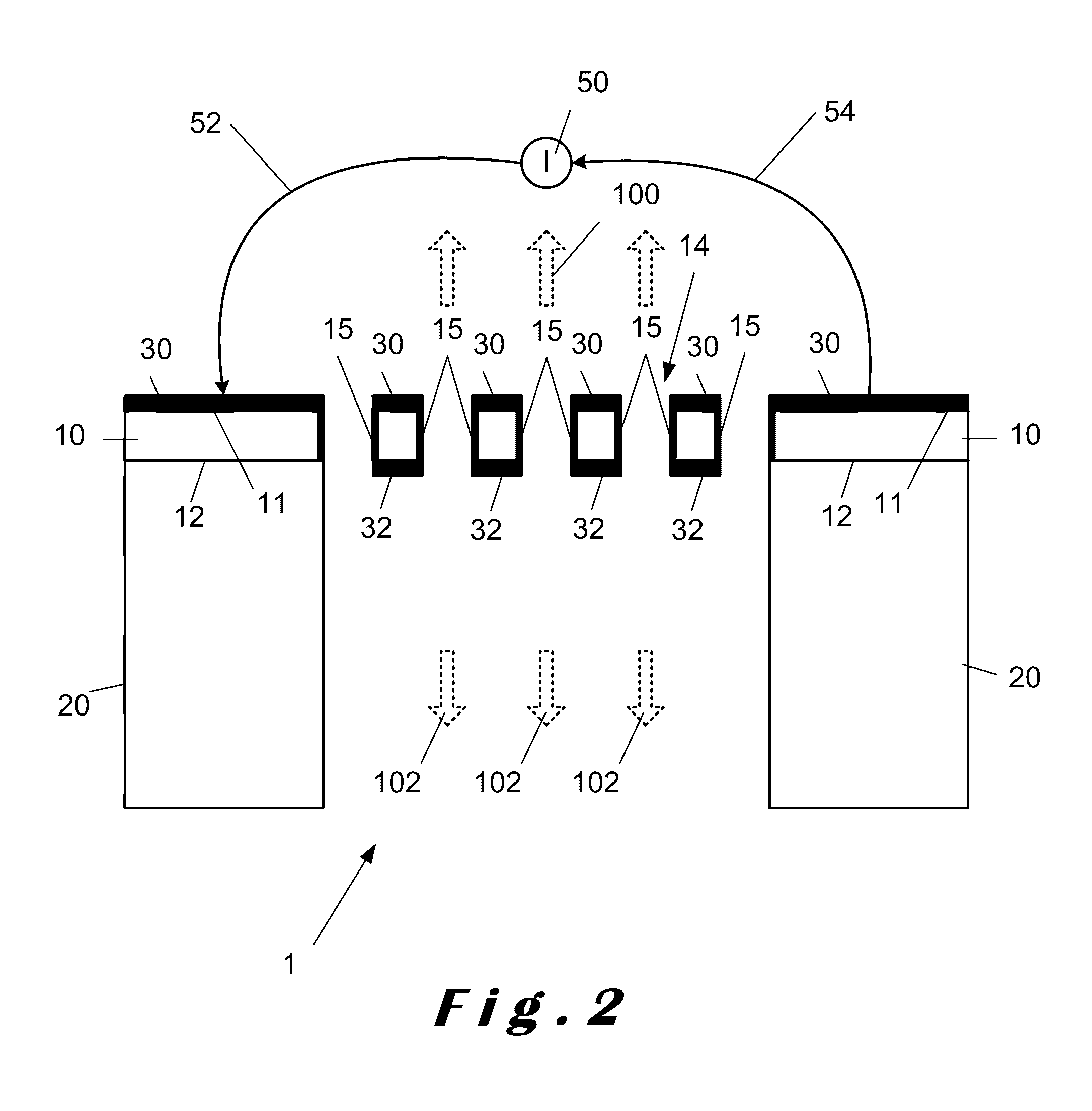Infrared emitter
a technology of infrared light and emitter, which is applied in the direction of semiconductor devices, lamp incadescent bodies, electrical equipment, etc., can solve the problems of poor conversion of electrical energy into useful infrared radiation, difficult and costly fabrication of implementations using metals (woodpiles), and difficult to obtain a well-defined emission spectrum centered on a chosen central infrared wavelength. , to achieve the effect of enhancing the emitted infrared light intensity
- Summary
- Abstract
- Description
- Claims
- Application Information
AI Technical Summary
Benefits of technology
Problems solved by technology
Method used
Image
Examples
Embodiment Construction
[0046]A representative embodiment of the infrared light emitter according to the disclosure is illustrated in FIG. 2. A substantially flat membrane 10, illustrated in FIG. 3, comprises a first surface 11 and a second surface 12 substantially parallel to the first surface 11. The flat membrane 10 comprises an array 13 of infrared wavelength sized through-holes 14. A first metal layer 30 is arranged on the first surface 11 and a second metal layer 32 is arranged on the second surface 12. The first metal layer 30 and the second 32 metal layer are deposited on the membrane 10 by conventional metal deposition techniques but other techniques may be used as well. A typical thickness of the metal layers 30, 32 is 0.5 μm. Preferably the thickness of the metal layers 30, 32 is more than 100 nm in order to assure a continuous and well adherent metal layer on the membrane, but thicknesses of less than 100 nm may be devised also for other applications, such as those requiring high modulation fre...
PUM
 Login to View More
Login to View More Abstract
Description
Claims
Application Information
 Login to View More
Login to View More - R&D
- Intellectual Property
- Life Sciences
- Materials
- Tech Scout
- Unparalleled Data Quality
- Higher Quality Content
- 60% Fewer Hallucinations
Browse by: Latest US Patents, China's latest patents, Technical Efficacy Thesaurus, Application Domain, Technology Topic, Popular Technical Reports.
© 2025 PatSnap. All rights reserved.Legal|Privacy policy|Modern Slavery Act Transparency Statement|Sitemap|About US| Contact US: help@patsnap.com



